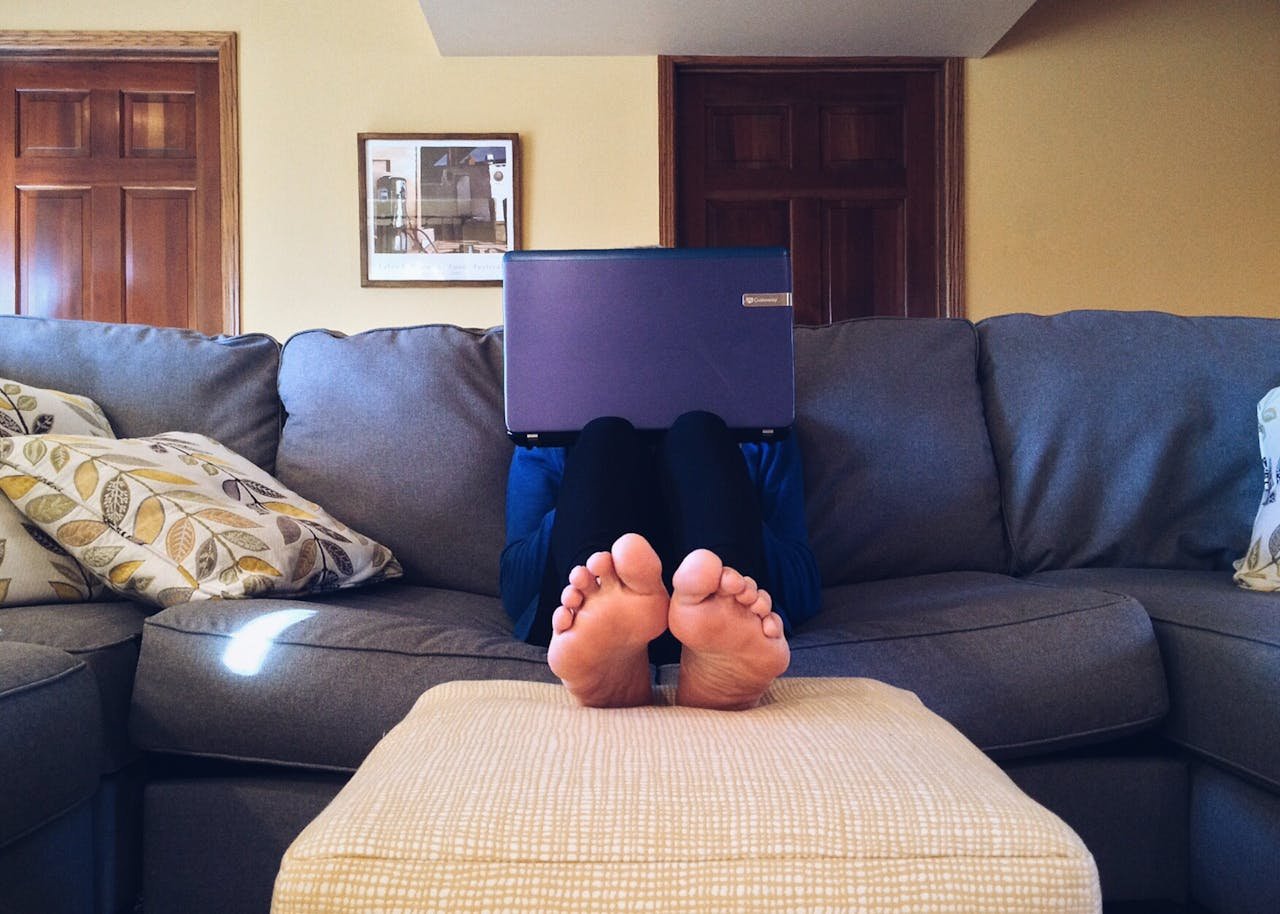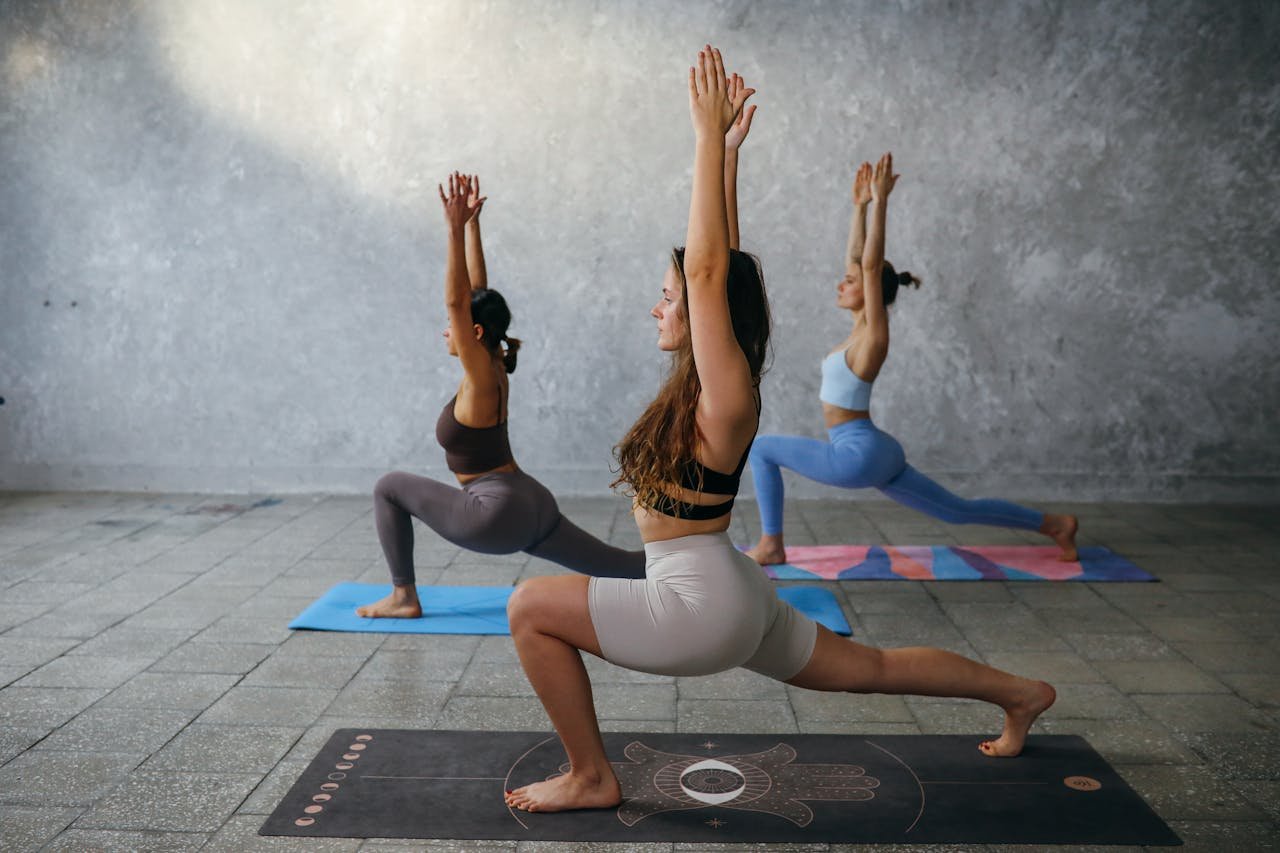Table of Contents
Introduction
In our modern, fast-paced world, the pursuit of a balanced lifestyle has become more crucial than ever. The constant juggling between work, personal life, and health can often leave us feeling overwhelmed and burnt out.
However, by implementing a few key strategies, it’s possible to achieve harmony, improve overall well-being and achieve a healthy living standard.
Here Are Seven Tips To Help You Maintain A Balanced And Healthy Lifestyle:
Prioritise Sleep

Quality sleep is the cornerstone of good health, yet it’s often neglected in our 24/7 society. Aim for 7-9 hours of sleep nightly, as recommended by sleep experts. Establish a consistent sleep schedule by going to bed and waking up at the same time every day, even on weekends.
Create a relaxing bedtime routine to signal to your body that it’s time to wind down. This might include activities like reading a book, taking a warm bath, or practising gentle stretches.
Avoid screens for at least an hour before bed, as the blue light emitted can interfere with your body’s natural sleep-wake cycle. Invest in a comfortable mattress and pillows, and ensure your bedroom is dark, quiet, and cool for optimal sleep conditions.
Nourish Your Body

A balanced diet is essential for maintaining good health and energy levels. Focus on incorporating a variety of nutrient-dense foods into your meals, including plenty of fruits, vegetables, whole grains, lean proteins, and healthy fats. Aim to eat a rainbow of colourful produce to ensure you’re getting a wide range of vitamins and minerals.
Stay hydrated by drinking at least 8 glasses of water a day, and consider keeping a water bottle with you as a reminder. Practice mindful eating by paying attention to your food, eating slowly, and listening to your body’s hunger and fullness cues.
This can help prevent overeating and promote a healthier relationship with food. Consider meal planning and preparation to ensure you always have healthy options on hand, even during busy weeks.
Regular Exercise

Physical activity is crucial for both physical and mental health. The World Health Organisation recommends at least 150 minutes of moderate-intensity or 75 minutes of vigorous-intensity aerobic activity per week for adults. Find activities you genuinely enjoy to make fitness a sustainable part of your routine.
This could be anything from brisk walking, swimming, or cycling to dance classes, team sports, or strength training. Mix up your routine to prevent boredom and work different muscle groups.
Remember that even short bursts of activity throughout the day can add up – take the stairs instead of the elevator, have walking meetings, or do bodyweight exercises during TV commercial breaks. The key is consistency and finding ways to make movement a natural part of your daily life.
Manage Stress

Chronic stress can have severe impacts on both physical and mental health. Develop a toolkit of effective stress-management techniques to help you navigate life’s challenges.
Meditation and mindfulness practices can be powerful tools for reducing stress and improving overall well-being. Start with just a few minutes a day and gradually increase the duration. Deep breathing exercises can be done anywhere and provide immediate stress relief.
Journaling can help process emotions and gain perspective on stressful situations. Regular practice of these techniques can improve mental resilience and emotional well-being over time.
Additionally, don’t underestimate the power of saying “no” to commitments that overextend you, and the importance of taking regular breaks throughout the day to reset and recharge.
Cultivate Relationships

Human connections are vital for our emotional and physical health. Nurture meaningful relationships with family, friends, and your community. Make time for regular check-ins with loved ones, whether it’s a quick phone call, a coffee date, or a shared meal.
Join clubs or groups aligned with your interests to meet like-minded individuals. Volunteer for causes you care about – this can provide a sense of purpose and connection to your community. In romantic relationships, prioritise quality time and open communication.
Remember that it’s not just about the quantity of relationships, but the quality. A few deep, supportive connections can be more beneficial than numerous superficial ones. Strong social bonds have been linked to increased happiness, better health outcomes, and even longer lifespans.
Continuous Learning

Engaging in lifelong learning keeps your mind sharp, increases your adaptability, and can lead to a more fulfilling life. Set aside time regularly to learn something new or deepen your knowledge in areas of interest.
This could involve reading books on various subjects, taking online courses, attending workshops or seminars, or learning a new language. Pursue hobbies that challenge you mentally, such as playing an instrument, solving puzzles, or learning a craft.
Stay curious about the world around you – ask questions, engage in meaningful discussions, and seek out diverse perspectives. Continuous learning not only expands your knowledge base but also enhances cognitive function, boosts confidence, and opens up new opportunities in both personal and professional realms.
Practice Work-Life Balance

In an era of constant connectivity, maintaining a healthy work-life balance is more challenging and more important than ever. Set clear boundaries between work and personal life. This might mean establishing specific work hours and sticking to them, even when working from home.
Create a dedicated workspace to help mentally separate work from leisure time. Learn to disconnect from work-related communications during off-hours – consider turning off email notifications on your phone after a certain time.
Make time for activities you love and that help you relax and recharge. This could be anything from gardening and cooking to travelling or spending time in nature.
Remember that taking time for yourself isn’t selfish – it’s necessary for long-term productivity and well-being. Regularly reassess your priorities and make adjustments as needed to ensure you’re allocating your time and energy in a way that aligns with your values and goals.
Conclusion

Achieving and maintaining a balanced lifestyle is an ongoing process that requires conscious effort and regular adjustment. By implementing these seven tips – you can create a foundation for a healthier, more fulfilling life.
Remember that balance doesn’t mean perfection, and it’s okay to have days where things feel out of sync. The key is to view these tips as guiding principles rather than strict rules, allowing for flexibility and self-compassion along the way.
Start by making small, sustainable changes and build upon them over time. As you integrate these practices into your daily routine, you’ll likely notice improvements in your physical health, mental well-being, and overall quality of life.
A balanced lifestyle not only benefits you but also positively impacts those around you, creating a ripple effect of well-being in your community. Embrace the journey towards balance, celebrate your progress, and remember that every step, no matter how small, is a step towards a healthier, more harmonious life.

FAQs
Why is sleep so important for a balanced lifestyle?
Sleep is crucial for physical restoration, mental clarity, and emotional regulation. It helps maintain a healthy immune system, improves memory, and reduces stress.
How can one practice mindful eating?
Mindful eating involves paying full attention to your food, eating slowly, savouring each bite, and listening to your body’s hunger and fullness cues.
What are some quick stress-management techniques for busy individuals?
Deep breathing exercises, short meditation sessions, brief walks, or listening to calming music can all be effective quick stress relievers.
How does continuous learning contribute to a balanced lifestyle?
Continuous learning keeps the mind active, boosts confidence, provides a sense of accomplishment, and can lead to new opportunities and perspectives.
What’s a simple way to improve work-life balance?
Setting clear boundaries, such as designated work hours and a separate workspace, can help maintain a healthier distinction between professional and personal life.



